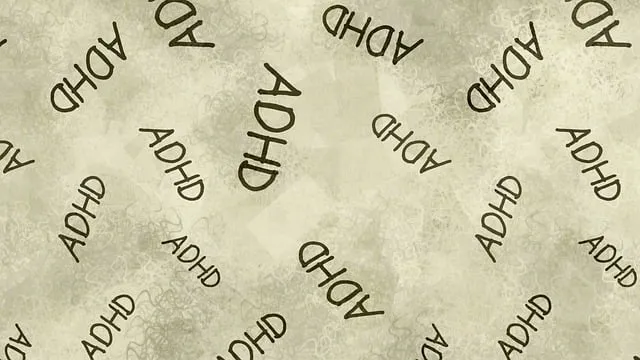Understanding your target audience, particularly those similar to Lakewood Kaiser mental health class attendees, is key for developing effective marketing strategies for mental wellness apps. This involves defining demographics and psychographics. By aligning marketing efforts with user characteristics like age, location, motivations (self-improvement, stress management), and emphasizing transparency, accessibility, and personalized experiences, developers ensure their messaging resonates. Incorporating Lakewood Kaiser's specialized programs showcasing expertise in emotional well-being enhances brand credibility. Crafting compelling content strategies with educational resources and user testimonials empower users to develop self-care routines. A robust online marketing strategy using SEO, social media, and email newsletters drives traffic and engagement. Measuring success through user metrics and feedback allows developers to tailor app improvements, solidifying its position as a valuable mental wellness resource.
In today’s digital landscape, promoting a mental wellness app requires a strategic marketing approach. This article guides you through crafting an effective plan. We’ll explore key aspects, from understanding your diverse user base—including defining demographics and psychographics of Lakewood Kaiser mental health classes users—to leveraging expert insights from these renowned classes in your marketing. Through compelling content strategies, optimized digital channels, and continuous feedback loops, you can enhance engagement and app success.
- Understanding the Target Audience: Defining the Demographics and Psychographics of Mental Health App Users
- Incorporating Lakewood Kaiser Mental Health Classes: Highlighting Expertise and Specialization in Your Marketing
- Crafting Compelling Content Strategies: Educational Resources, Testimonials, and Interactive Features for Engagement
- Leveraging Digital Marketing Channels: Optimizing SEO, Social Media, Email Campaigns, and Influencer Collaborations
- Measuring Success and Feedback Loop: Analyzing User Metrics, Incorporating User Suggestions, and Iterative App Improvements
Understanding the Target Audience: Defining the Demographics and Psychographics of Mental Health App Users

Understanding your target audience is a cornerstone when developing any marketing strategy, especially for mental wellness apps. To effectively reach users like those attending Lakewood Kaiser mental health classes, it’s essential to define both demographics and psychographics. Demographically, this might include age groups, genders, geographic locations, and educational backgrounds. For instance, many mental health app users tend to be millennials or Gen Z, with a higher concentration in urban areas. Psychographically, understanding the motivations, values, and interests of potential users is crucial. Users seeking mental wellness apps often have a heightened interest in self-improvement, resilience building, and stress management workshops organization. They value transparency, accessibility, and personalized experiences, such as those offered through mental wellness coaching programs development. By tailoring marketing efforts to these specific characteristics, app developers can ensure their messaging resonates with the intended audience.
Incorporating Lakewood Kaiser Mental Health Classes: Highlighting Expertise and Specialization in Your Marketing

Incorporating Lakewood Kaiser mental health classes into your marketing strategy is a powerful way to highlight expertise and specialization, instantly boosting your brand’s credibility in the eyes of potential users. These classes, renowned for their comprehensive approach to emotional well-being promotion techniques, offer a unique selling point that sets you apart from competitors. By showcasing your association with Lakewood Kaiser, you’re not just advertising a service; you’re promising access to evidence-based practices and a team of mental wellness coaches who are experts in their field.
Focus on the diverse range of Mental Wellness Coaching Programs Development available, emphasizing how they cater to various cultural sensitivities in mental healthcare practice. This aspect is crucial in today’s inclusive society, where personalized care that respects individual backgrounds is highly valued. Highlighting these specialized programs demonstrates your commitment to providing tailored solutions and fostering a safe, supportive environment for all users, thereby attracting a diverse user base.
Crafting Compelling Content Strategies: Educational Resources, Testimonials, and Interactive Features for Engagement

Crafting compelling content strategies is essential for marketing mental wellness apps. Educational resources, such as articles, videos, and interactive tools like mood trackers or meditation guides, empower users with self-care routine development for better mental health. By incorporating these features, apps can help individuals learn coping skills development techniques tailored to their unique needs.
Testimonials from satisfied users further enhance engagement by sharing real-life success stories and demonstrating the app’s effectiveness. Integrating interactive elements encourages active participation, fostering a sense of community among users. For instance, Lakewood Kaiser mental health classes leverage these strategies to offer comprehensive programs that cater to various aspects of mental wellness, ensuring a holistic approach to user well-being.
Leveraging Digital Marketing Channels: Optimizing SEO, Social Media, Email Campaigns, and Influencer Collaborations

In today’s digital era, leveraging various online channels is pivotal for the success of any mental wellness app marketing strategy. One effective approach involves optimizing Search Engine Optimization (SEO) to enhance visibility and drive organic traffic. By incorporating relevant keywords like “Lakewood Kaiser mental health classes” into content, the app can rank higher in search results, attracting users actively seeking such services. Additionally, social media platforms offer a powerful tool for engagement; targeted campaigns on channels frequented by the intended audience can effectively promote the app’s unique features and benefits.
Email marketing remains a robust strategy, allowing direct communication with potential users. Crafting compelling newsletters highlighting coping skills development or burnout prevention strategies for healthcare providers can foster trust and interest. Influencer collaborations further amplify reach; partnerships with mental health advocates or well-known figures in the industry can introduce the app to new audiences, especially when addressing cultural sensitivity in mental healthcare practice. This multi-faceted digital marketing approach ensures a comprehensive strategy tailored to the modern user’s online behavior.
Measuring Success and Feedback Loop: Analyzing User Metrics, Incorporating User Suggestions, and Iterative App Improvements

Measuring success is a crucial aspect of any mental wellness app’s marketing strategy. By analyzing user metrics such as engagement rates, completion of tasks, and feedback forms, developers can gauge the effectiveness of their app. These insights enable them to understand what features resonate with users most, like Lakewood Kaiser mental health classes focusing on specific emotional healing processes. Incorporating this real-world data into improvements ensures the app aligns with user needs and expectations.
A robust feedback loop is integral to iterative app improvements. Encouraging users to share suggestions through in-app surveys or review systems provides direct communication about desired changes. For instance, incorporating positive thinking exercises or communication strategies based on user requests can enhance engagement. Regular updates incorporating these insights not only improve the user experience but also reinforce the app’s value proposition, making it a go-to resource for mental wellness.
Developing a comprehensive marketing strategy for a mental wellness app involves understanding your target audience, leveraging expert resources like Lakewood Kaiser mental health classes, crafting compelling content, and utilizing digital channels effectively. By incorporating these strategies, you can create a strong user base and ensure continuous improvement based on feedback. Remember, mental health app users are diverse, so personalized approaches that cater to both demographics and psychographics are key to success. Regularly measuring user engagement and satisfaction through analytics and user suggestions will help optimize your app, making it a valuable resource in the mental wellness landscape.






